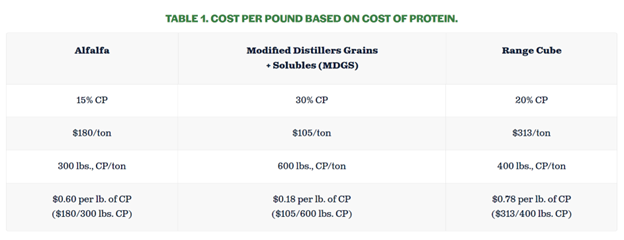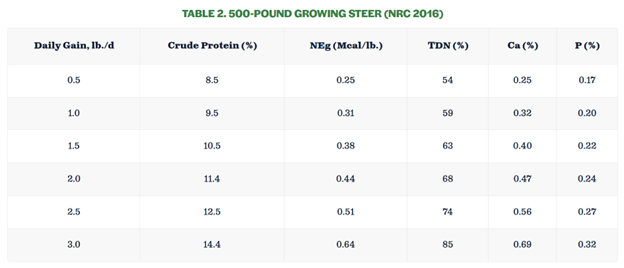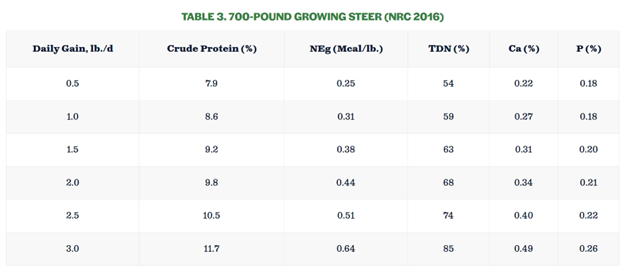Growing calf requirements with protein supplementation while winter grazing
Growing calves need higher-quality nutrition than cows do.
January 10, 2024

By Sydney Vanderhoff, SDSU Extension
Often when thinking of grazing dormant winter range, we think of spring-calving cow herds grazing prior to calving. However, let’s switch gears and think about grazing growing calves on winter range. Due to their growth requirements, growing calves need higher-quality nutrition than cows do. As a result, growing calves will require more protein and energy supplementation when grazing winter range.
What does winter range provide?
Nutritionally, winter range is only 49% to 52% total digestible nutrients (abbreviated as TDN) with crude protein (abbreviated as CP) varying from 5% to 7%. In order to grow properly and maintain desired grains, growing calves require some kind of supplementation. Given this, calves grazing winter range require supplemental sources of protein to reach production goals. It is important to evaluate available supplement sources on a cost per pound of protein basis when determining what to supplement. The cheapest source on a ton basis may not always be the cheapest for a specific nutrient. Table 1 below shows an example of comparing three protein sources on their cost per pound of CP.

Dietary requirements
Growing calves have a metabolizable protein (abbreviated as MP) requirement: combination of rumen microbes and rumen undegradable protein (abbreviated as RUP). Dietary requirements depend on the animal’s age, weight, and desired rate of gain. Targeted rates of gain vary from producer to producer depending on their goals, but typically they are seen to be between 0.5 and 1.5 pounds per day. Keep in mind that requirements will continue to increase as the calf grows. Listed in Table 2 and Table 3 are the daily dietary requirements for a 500-pound and a 700-pound growing calf.


Summary
Know protein and energy levels of winter range to help determine level of supplementation needed.
Evaluate protein supplements on a cost per pound basis to aid in decision making.
Have a targeted rate of gain to know the dietary requirements of the growing calf.
Contact an extension field specialist to help make sure requirements are being met and correct level of supplementation reached.
You May Also Like


.png?width=300&auto=webp&quality=80&disable=upscale)
